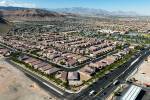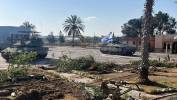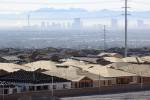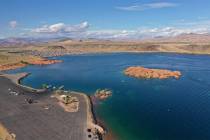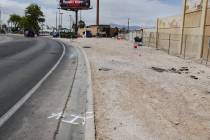2012 heat in Nevada sets records


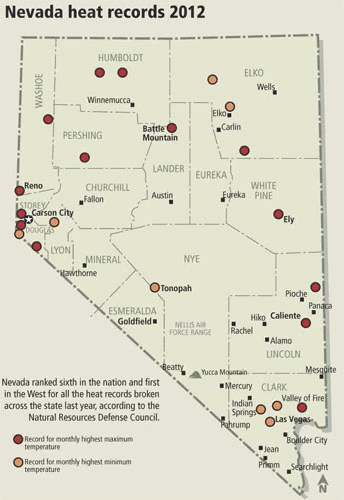
If there are two things Nevada is good for, it’s hot weather and high rankings on depressing lists.
The National Resources Defense Council has managed to bring both character traits together in a year-end weather review that puts Nevada first in the West and sixth in the nation for heat records broken in 2012.
According to the environmental group’s analysis, 36 heat records fell across Nevada last year, with 12 of the state’s 17 counties experiencing record-breaking temperatures.
Only five states – Tennessee, Wisconsin, Minnesota, Illinois and Indiana – saw a higher percentage of heat records set.
Nevada also experienced 14 rainfall records in seven counties, 11 snowfall records in five counties and 86 wildfires that charred 90 acres or more.
The results were emblematic of a year of extreme weather across the country, according to the Natural Resources Defense Council.
A new interactive map released this week at nrdc.org/health/extremeweather charts 3,527 monthly weather records set nationwide for heat, rain and snow. That is up from the 3,251 weather records broken in 2011.
“2012’s unparalleled record-setting heat demonstrates what climate change looks like,” Kim Knowlton, senior scientist for the New York City-based environmental advocacy group, said in a statement. “This extreme weather has awoken communities across the country to the need for preparedness and protection. … Now our leaders must act.”
Tom Piechota is vice president for research at UNLV and a civil engineer with a background in water resource issues.
He said reports like this basically highlight what we already know.
There is very little debate left about the existence of climate change, and there is mounting scientific evidence that human activity is spurring the change, Piechota said.
“But regardless of whether you buy into that or not, things definitely seem to be different now,” he said. “You’re going to have to plan for different extremes than you did in the past.”
2012 was the warmest on record in Las Vegas by two-tenths of a degree, and the National Oceanic and Atmospheric Administration recently declared it the warmest year ever recorded in the United States by a full degree.
Experts think Las Vegas’ warming is almost entirely the result of more concrete and pavement that absorb heat and keep the valley from cooling off at night the way it once did. But Piechota said there is another local impact of climate change to worry about.
“It has the potential of impacting our water supply,” he said, by disrupting or depleting mountain snowfall that feeds the Colorado River and fills Lake Mead.
Piechota said the Natural Resources Defense Council’s weather review is “pretty timely” despite being released during one of the coldest weeks Las Vegas has seen in years. The review comes as a federal panel of researchers nears completion on the latest National Climate Assessment, a four-year look at the effects of global change on agriculture, energy production and use, land and water resources, transportation, human health and welfare, and the environment.
Piechota served as co-author for the assessment’s chapter on the Southwestern United States.
He said the massive report is available for public review at globalchange.gov/what-we-do/assessment.
It is due to be finished and delivered to Congress and the president later this year.
Contact reporter Henry Brean at hbrean@reviewjournal.com or 702-383-0350.




